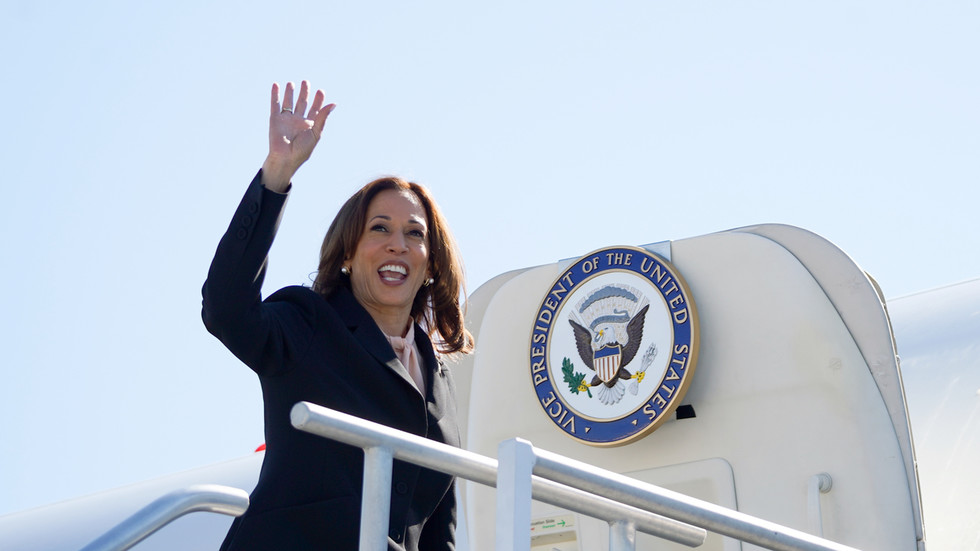In a recent town hall hosted by CNN, US Vice President and Democratic presidential candidate Kamala Harris made provocative remarks regarding her Republican opponent, Donald Trump, labeling him a “fascist” who harbors admiration for dictators. This statement was made in the context of a renewed critique of Trump, stemming from interviews with John Kelly, the former White House chief of staff who served under Trump. In these interviews, Kelly voiced his harsh criticism of Trump, suggesting that the former president embodies the principles of fascism as defined by an authoritarian, ultranationalist political ideology. Harris amplified these sentiments, asserting that should Trump return to the presidency, he would likely govern in a manner that aligns with authoritarian dictatorial practices.
Harris’s comments sparked a response from Trump’s campaign, which condemned her rhetoric as “disgusting” and linked it to the violent incidents surrounding Trump, including two documented assassination attempts against him. The campaign accused Harris of contributing to an atmosphere of hostility and danger that endangers Trump, arguing that inflammatory speech not only reflects poorly on the speaker but also has tangible consequences. In their defense, they positioned such rhetoric as not just offensive but also personally threatening to the former president, framing their narrative around the need for civil discourse amid a contentious political landscape.
The backdrop to Harris’s statements includes the broader discourse surrounding Trump’s political persona, which many critics argue embodies authoritarian characteristics. Kelly’s assessment provided a foundation for Harris’s comments—it outlined the features of fascism that he claimed were evident in Trump’s behavior and decision-making. He defined fascism by its central pillars: dictatorial leadership, centralized power, and suppression of dissenting voices. Kelly’s remarks, coupled with his claims about Trump’s alleged admiration for historical figures like Adolf Hitler, reinforced the serious nature of the accusations and intensified the ongoing debate over the proper categorization of Trump’s political style.
The backlash against Harris and Kelly’s statements by Trump’s campaign involved disparagement of their credibility. The campaign’s spokesperson labeled Kelly as someone who has embarrassed himself with what they deemed unfounded accusations, framing the comments as fabricated narratives that lacked substantiation. This tactic is a common one in political discourse, where challengers often seek to undermine the legitimacy of their opponents’ claims through questioning their character and motivations. The ongoing back-and-forth between the Republican and Democratic camps highlights the polarized nature of contemporary politics, where harsh rhetoric is increasingly commonplace.
This confrontation is set against a backdrop of a highly charged electoral environment, as the 2024 presidential election approaches. Both sides are vying for public support, and rhetoric is often sharpened to appeal to their respective bases. For Democrats, portraying Trump as a dangerous figure aligns with a strategy that seeks to mobilize voters who are concerned about authoritarianism, while Republicans, in turn, aim to frame their candidate as a victim of lies and fabrications, thereby solidifying their own support. The dialog has been particularly fierce, as both parties seek to leverage high-stakes issues like national security and the integrity of democratic principles to galvanize their followers.
Amid these amplified tensions, the discourse surrounding Trump’s presidency continues to yield complex ramifications. The assertions made by Harris and Kelly challenge not only Trump’s political identity but also raise broader questions about the values and principles that define American democracy. The debate over what constitute authoritarian traits seems destined to persist, particularly as the nation heads toward a crucial electoral season. The implications of labeling political opponents extend beyond mere rhetoric; they can frame public perception and potentially influence electoral outcomes significantly.

